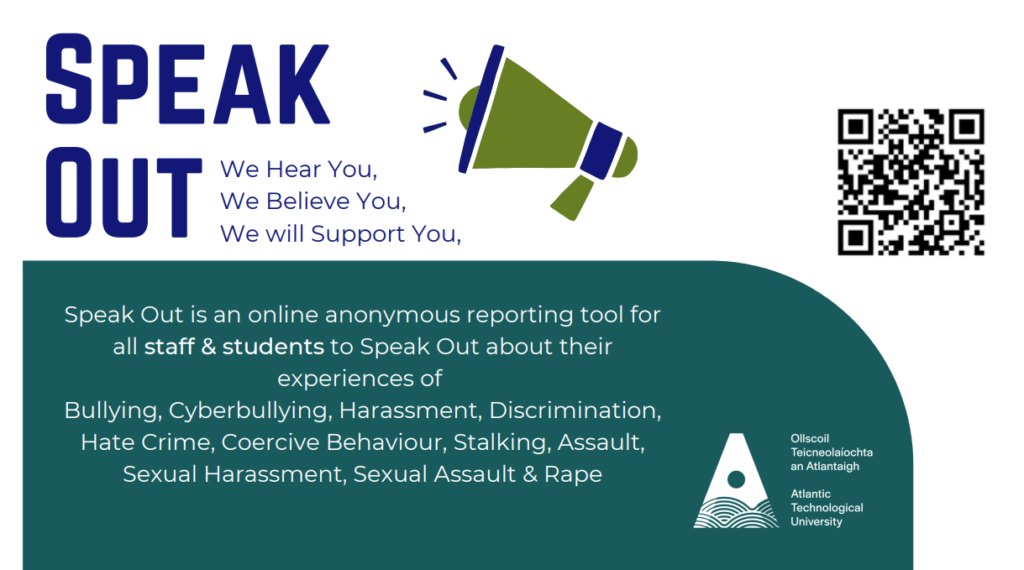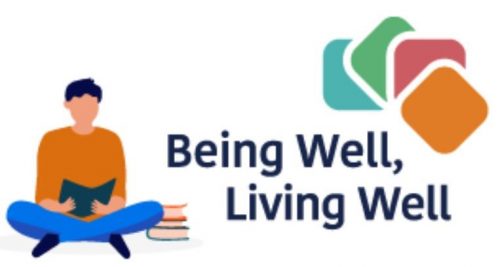Counselling
The Student Counselling Service aims to provide a confidential support service that is free of charge to all registered ATU Sligo students residing in the Republic of Ireland.
The service offers students the opportunity to explore any issue which may be impacting on their mental health and general well-being in a confidential setting.
Confidentiality
Be assured that confidentiality is a central and integral part of the counselling process. It offers safety and privacy to students who choose to discuss personal and private concerns, and it safeguards against any inappropriate or unnecessary disclosures.
All information given by you to your counsellor is confidential and won’t be disclosed to anyone outside of the Student Counselling Service. The only exception is if your counsellor is concerned about immediate risk to you or a third party.
Making an Appointment/Referral
The Counselling Service operates on an appointment basis. If you would like to make an appointment , please contact the service by:
- Email: counselling.sligo@nullatu.ie
- Phone: 071 9305463
Referring Students to the Student Counselling Service – Staff Guide.
In the event of an emergency or a crisis, it is important to state this on contacting the Counselling Service.
Dr Siobhan McNally
Counselling Psychologist
Siobhan is a Counselling Psychologist and member of the Psychological Society of Ireland (PSI) and Health and Care Professions Council (HCPC). She has experience in a variety of specialist and health care settings across the UK and Ireland.
With expertise in both assessment and therapy, Siobhan’s experience includes short and long term clinical work, in areas including but not limited to; depression, anxiety, personality disorders, addiction, loss and trauma, autism, disability, and challenging behaviour, within a range of inpatient and community based mental health and primary care psychology services.
Siobhan’s therapeutic interests include Emotion-Focused, Cognitive-Analytic and Existential therapies with a focus upon subjective meaning and emotional processing. Her doctoral research formed part of an initiative within Trinity College aimed at developing Emotion Focused Therapy as a treatment approach for Depression. Siobhan’s research findings have been presented at a number of events and conferences within Europe and the United States.
Geraldine Gilroy
Counsellor/Clinical Supervisor
Geraldine has a Degree in Education, a Masters in Counselling and Post graduate diploma in Clinical Supervision, a diploma in The Psychology of Counselling and a Certificate in Addiction Studies.
She is an accredited member of the Irish Association of Counsellors and Psychotherapists (IACP) since 2006.
Geraldine is an accredited Clinical/Counselling Supervisor since 2017.
Geraldine is a member of the Department of Education and Skills Teaching Council.
Geraldine has twenty years’ experience working as a counsellor in both private practice and educational institutions.
She has worked with individuals, couples and groups.
Her group work has included working with people who have specific disabilities and/or live with someone who has a disability as well as supervising groups of people who are working with groups.
She has vast experience in designing and delivering workshops and presentations on various aspects of mental health and wellbeing to a variety of audiences.
Geraldine is a past chairperson of the IACPI (Irish Association for Counselling and Psychotherapy) Regional Committee and has represented IACP members at executive committee level and on national media platforms.
Geraldine is dedicated to keeping up to date on the latest developments in mental health research and she is passionate about promoting positive mental health.
- Discuss attending the student counselling service with the student
- Reiterate that the Counselling Service is confidential
- Provide accurate information on how to access the Service
- Where necessary accompany the student to the Service
- Self-referral to the Counselling Service is welcomed and encouraged. No referral letter is necessary
Please contact the Counselling Service Reception for further information.

Togetherall
Togetherall is a safe online community where you can anonymously connect with people who understand what you’re going through.
Whether you want to get advice, tips or just want someone to listen outside of your friendship group, Togetherall is available to you. You too may be able to help others.
Lots of students find Togetherall helpful as you can continue exploring your feelings at your own pace, speak to others in similar situations and make use of many resources without a time pressure- all in the one platform.
You have free access, can get immediate support and it’s available 24/7! Go to Together.com website and use your student email address to register as a member of a university or college.

Speak Out
Speak Out is an online and anonymous reporting tool available for students and staff to disclose past or ongoing incidents of bullying, cyberbullying, harassment, discrimination, hate crime, coercive behaviour/control, stalking, assault, sexual harassment, sexual assault, and rape.
The information you provide using this tool is valuable as the data collated will help inform ATU Sligo activities aimed at addressing bullying, harassment and sexual misconduct.
It is important to remember that as the Speak Out reporting tool is completely anonymous, there is no way of identifying or contacting any member of the university community who uses the tool. Ongoing or past incidences witnessed or experienced can be reported.
The tool will help you to find information and contact details of relevant ATU Sligo supports and specialist external supports.
Please report one incident, or a series of related incidents at a time. This is to ensure that we can understand the nature of your experience.

Being Well, Living Well Toolkit
The Being Well Living well toolkit helps students to develop the confidence to manage wellbeing issues they may face and understand that they are not alone in experiencing challenges in their academic and personal lives – whilst also providing guidance on supporting their friends, and signposting when and where to seek further support if needed.
The toolkit covers 4 main themes:
1. Living Well
2. Feeling Well
3. Staying Safe
4. Spending Well
The online toolkit allows students to dip in and out of the themed resources at anytime. It also contains useful ATU Sligo resources and supports to help students overcome pressures and anxieties.

Contact us
Email: counselling.sligo@nullatu.ie
Phone: 071 9305463
Location:The Student Counselling Service is located on the ground floor of the Student Centre beside the Students Union.
Opening Hours: Monday to Friday: 9am – 4pm
Explore further:
Other useful links
- E-resources for positive wellbeing
- 7 Tips to help with stress and anxiety
- CBT self help and therapy resouces
- Stress management
- 15 ways to boost your mental health
- Sef help resources for mental health problems
- Looking after your mental health
- Time management techniques
- Free guide to living with worry and anxiety amidst global uncertainty
- Mindfullness for wellbeing and peak performance – Monash (Australia)
- Demystifying mindfulness – Leiden Univeristy (Netherlands)
- Managing mental health and stress (University of Coventry)
- Thrive in trying times (University of Michigan)
- Work-life balance and the impact of remote working (University of Coventry)